Our series “Celebrating Motherhood” shares inspiring stories, helpful advice, and insightful recommendations for choosing the perfect gifts to express your love for moms of all types. In this article, we explore six of the greatest moms in history.
Moms are the unsung heroes of the world. They rise to accept a responsibility that takes hard work and dedication, often sailing under the radar. Chances are that you know plenty of amazing moms (and may even be one yourself) — but it’s important that we also tip our collective hat to mothers of the past.
But although the most impactful women in history get credit for being incredible leaders, history books usually fail to mention that they were also mothers. Why is that?
“I think it’s important to keep in mind that there wasn’t much of a choice about whether a woman was going to be a mother or not in earlier times,” says Mary Dillard, Ph.D., director of graduate studies in women’s history at Sarah Lawrence College.
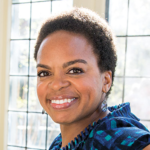
It’s often hard to separate the image of a mother from just being a nurturer — that’s a powerful image.
Mary Dillard
Director of Graduate Studies in Women’s History
Sarah Lawrence College
“That, of course, does not mean these women didn’t want their children, just that the time was different,” Dillard says. “I think one of the largest reasons that important, historical women aren’t often recognized for both their historical accomplishments and their motherhood is that, in history, it’s not usually something that’s noted. Even with men, genealogy and parenthood aren’t discussed unless they’re pertinent to what happens after them — a political dynasty, for example.”
Further, Dillard believes these details about powerful women could sometimes be left out intentionally, to separate the image from strictly nurturing.
“It’s often hard to separate the image of a mother from just being a nurturer — that’s a powerful image,” she says. “To emphasize these aspects of these famous women could have the potential to undermine the focus of the things they did.”
Today, we want to look at these powerful & famous women in history to recognize their accomplishments with this in mind — they were mothers, too.

Inspiring historical figures who happened to have been moms
These women were leaders, influencers, and women who made differences so substantial they altered the course of history — and through it all, they were dedicated and determined mothers, to their own children and beyond.
Julia Ward Howe
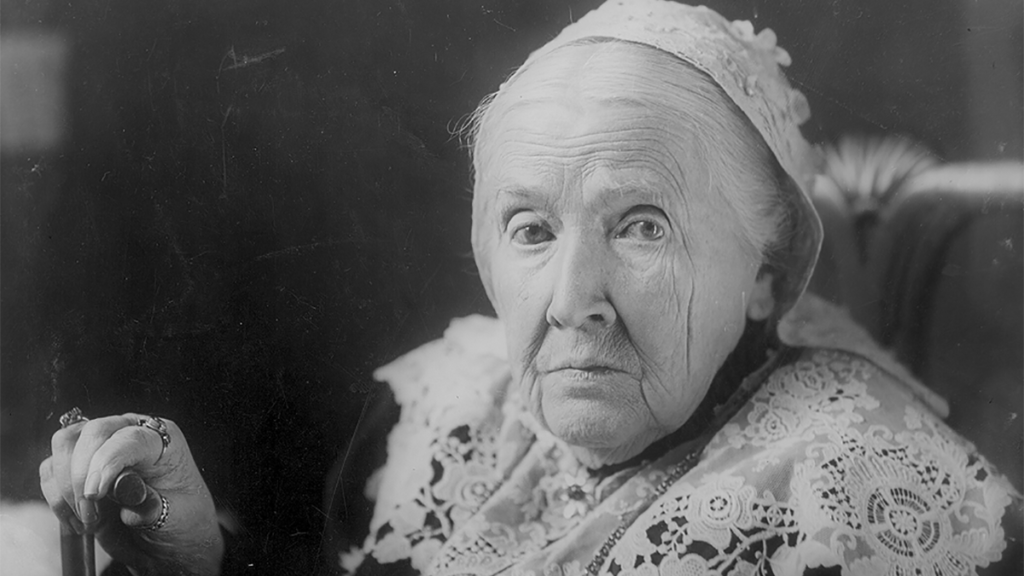
A famous abolitionist, suffragist, writer, and beyond, Julia Ward Howe is perhaps best known as the co-founder of the American Woman Suffrage Association. Though her own mother died when she was just five in 1824, she had a strong, motherly influence in the form of her aunt who exposed her to languages, science, literature, and of course, poetry — something she became famous for. It’s purely speculation, but it’s said this impact from her aunt influenced her own take on motherhood for her six children.
One of the most notable things about Julia Ward Howe? She authored the Appeal to Womanhood Throughout the World — a pacifist reaction that would later become infamously known as the Mother’s Day Proclamation. In this proclamation, Julia appeals to all women to unite for peace in the world, furthering the initial vision of Mother’s Day in the U.S. for women to “rise up through the ashes and devastation” to stand with a message of peace, honor, and support for mother’s who’d lost sons and husbands in the wake of the Civil War.
Marie Curie
Marie Curie is best known for being the first woman to ever win a Nobel Prize in Physics and Chemistry — something that led to her other notable distinction as the first person to claim Nobel honors twice. A champion in the development of X-rays (due to her discovery of polonium and radium), she was a pioneer in the study of radiation.
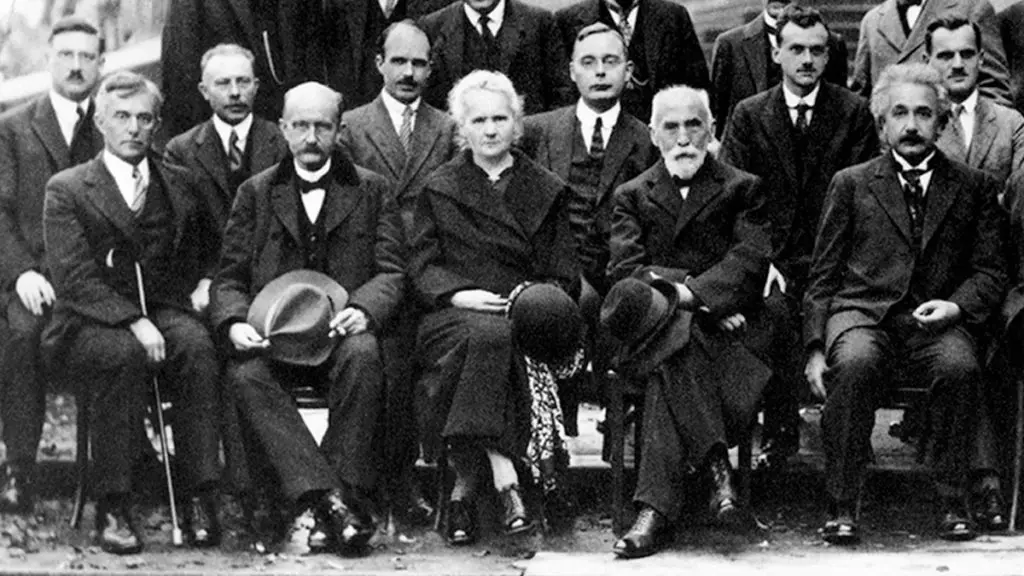
Though Marie is known as the mother of physics, she also played another enormously important role: a mother. Marie had a husband she loved dearly, but he died shortly after her second child was born — leaving her to raise the children on her own. Not only did she raise and guide her two daughters, but also took it upon herself to homeschool her children, passing along her brilliance. One of her daughters even followed in her footsteps, working alongside her mother and receiving military honors for her work. Marie died in 1934.
Elizabeth Cady Stanton
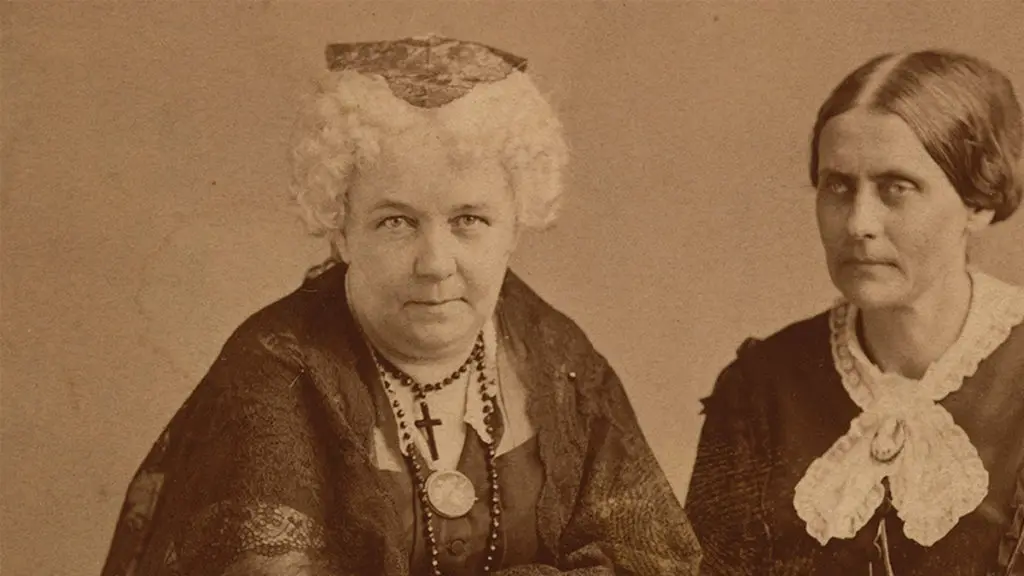
Considered to be one of the leading figures of the early women’s rights movement in the 19th century, Elizabeth Cady Stanton is best known for her dedicated efforts in writing the Declaration of Sentiments for the Seneca Falls Convention as well as organizing the women’s suffrage movement in the United States. Though the suffrage movement was one of her top priorities, Stanton was a dedicated mother to her seven children.
It’s said that it was her love for her children meshed with her frustration of being confined to the home (due to the time period) that motivated her to fight so hard against what she called the “absolute tyranny” men had held women in — she fought for women to own property, the right to vote, the right to divorce husbands without losing custody of children, to earn wages, and much more.
Stanton is one of the most prominent figures in the women’s rights movements as well as a devoted mother who wanted to fight for a world with a much more level playing field for her children and others.
Georgina Đuka Tesla
You’ve probably heard of the great inventor Nikola Tesla. He was on one side of a heated “alternating current war” with Thomas Edison in the 1880s over the technology and future of electricity. His legacy lives on, and today his name is blazoned on modern-day Tesla electric cars. But you probably don’t know that his mother, Georgina, was an inventor too.
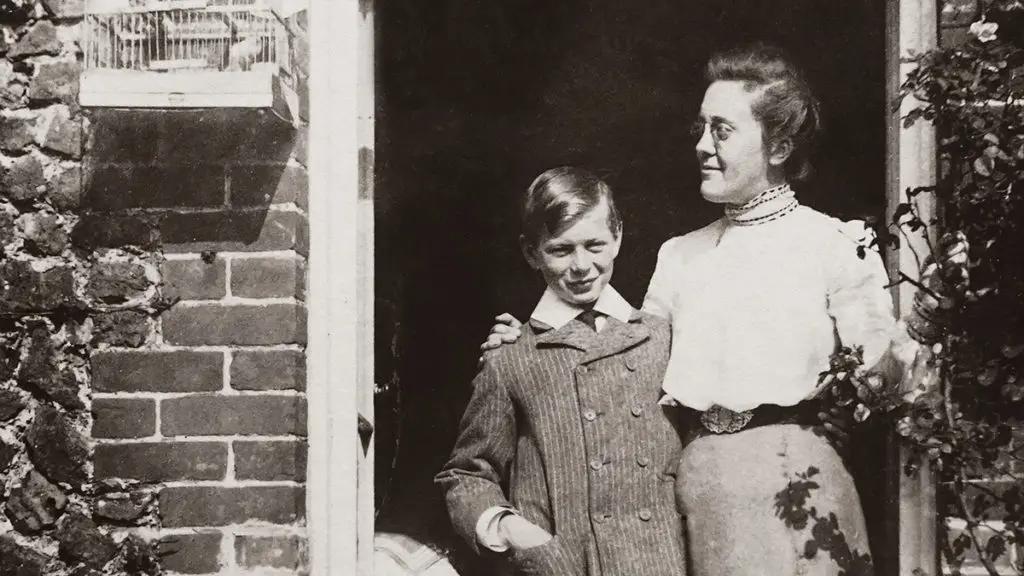
She was the eldest of seven siblings, and though she was extremely intelligent, she never attended school. Nikola, who was close with his mother, called her a first-class inventor. Obviously, as a woman in the 1800s, her opportunities were limited, and Tesla believed she could have achieved more in different circumstances.
The family lived in a rural area in Serbia, and Georgina created devices to help the household run more smoothly — such as an egg beater. She was also an excellent weaver and could tie three knots on an eyelash even after reaching her 60s. Although Georgina couldn’t read, she memorized many Serbian folk poems.
NikolaTesla was by his mother’s side when she died on April 4, 1892, at the age of 71. He had been in Europe giving university lectures when he received a telegram saying she was sick, and he abandoned the tour to be with his mother. Her last words were, “You’ve made it, Nidža. You are here, my pride.”
Sojourner Truth
We all know Sojourner Truth (born Isabella Baumfree) as an abolitionist, women’s rights activist, and evangelist, but she deserves to be honored as a mother (and daughter to an amazing mom), too. In her autobiography, Truth speaks fondly of her own mother, “Mau-Mau Bett,” who had 12 children.
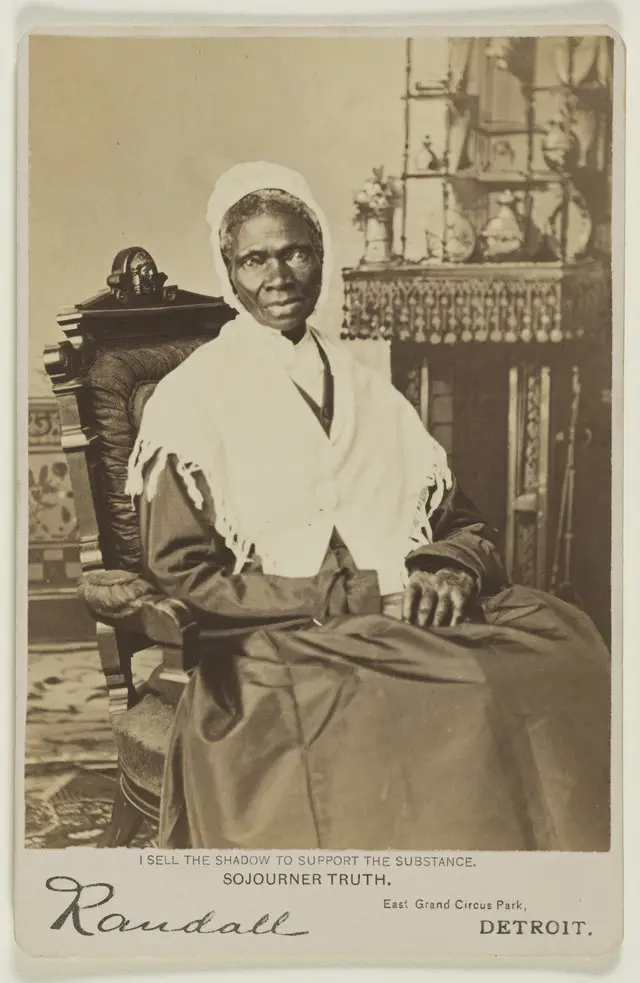
Even as Mau-Mau watched her children be sold into slavery and separated from her, she said, “[Those] are the same stars, and that is the same moon, that look down upon your brothers and sisters and which they see as they look up to them, though they are ever so far away from us and each other.”
Truth showed a deep dedication to her own children, too. When she escaped to freedom with her infant daughter in 1862, she had to leave four children behind. Truth later discovered that one of her children, Peter, had been illegally sold into slavery.
She confronted the enslavers, but they didn’t think she could afford to rescue Peter. As Truth says in her autobiography, though, “I have no money, but God has enough, or what’s better! And, I’ll have my child again!”
With the help of an abolitionist family, she successfully sued the enslavers who took her 5-year-old son. Truth was the first Black woman to sue a white man and win.
Edith Roosevelt
In 1901, Edith Roosevelt, mom to six children and wife to Theodore Roosevelt, became First Lady, and one of the largest First Families moved into the White House. Of course, the expectations for both motherhood and the role of First Lady were different back then — today a mother in the White House has to juggle the demands and duties of both occupations, all while under media scrutiny.
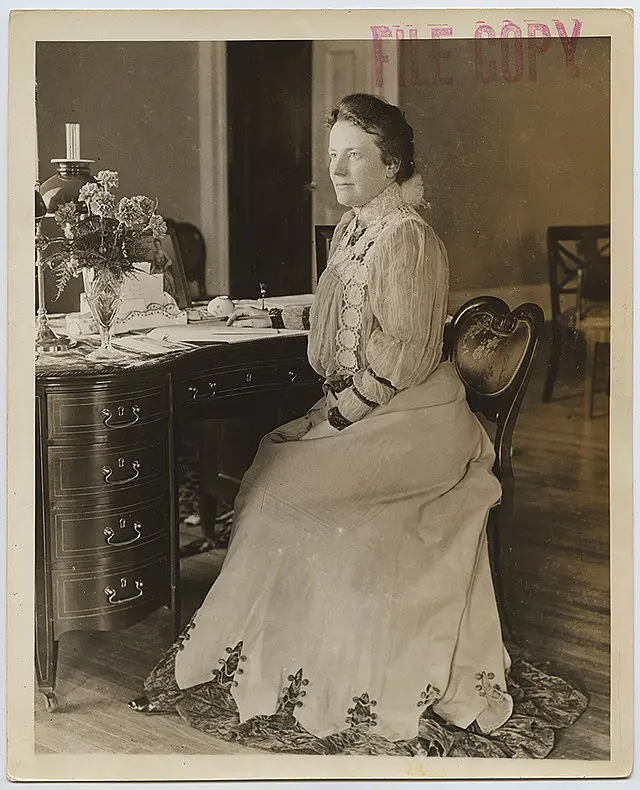
Even so, Edith Roosevelt made sure she protected the children from publicity, even as her husband attempted to get more press attention. She wanted to have more children, and she had at least one miscarriage as First Lady. “Because of her era, she was a wife first and foremost,” says historian Stacy A. Cordery. “Because of her class, she was not expected to do things that a nursemaid, cook, governess, or tutor would do for or with the children — like bathe, feed, and school them.”
What was unique about Edith and Theodore, however, was their involvement in their children’s lives at the time, particularly in light of Theodore’s duties as president. “In part, we see the Roosevelts as such ‘good’ parents because they did more with their children than most elite, white parents of the era, and in that way come closer to our modern definition of ‘good’ parents,” Cordery says.
One of the family’s most prominent pursuits was reading. “She and TR both read to the children because [Edith] was a passionate reader, and because TR was as well — they communicated that love to their children,” Cordery says.
Edith Roosevelt did not see herself as a role model for mothers as First Lady, though. “Edith intentionally destroyed much of her correspondence. She knew that TR’s life and world were going to go down in history, and she did not want history prying into her own writing,” says Sharon Kilzer, project manager of Dickinson State University’s Theodore Roosevelt Center.
That did not stop Theodore from praising his wife in a letter to a friend: “I do not think my eyes are blinded by affection when I say that she has combined to a degree I have never seen in any other woman the power of being the best of wives and mothers, the wisest manager of the household, and at the same time being the ideal great lady and mistress of the White House.”

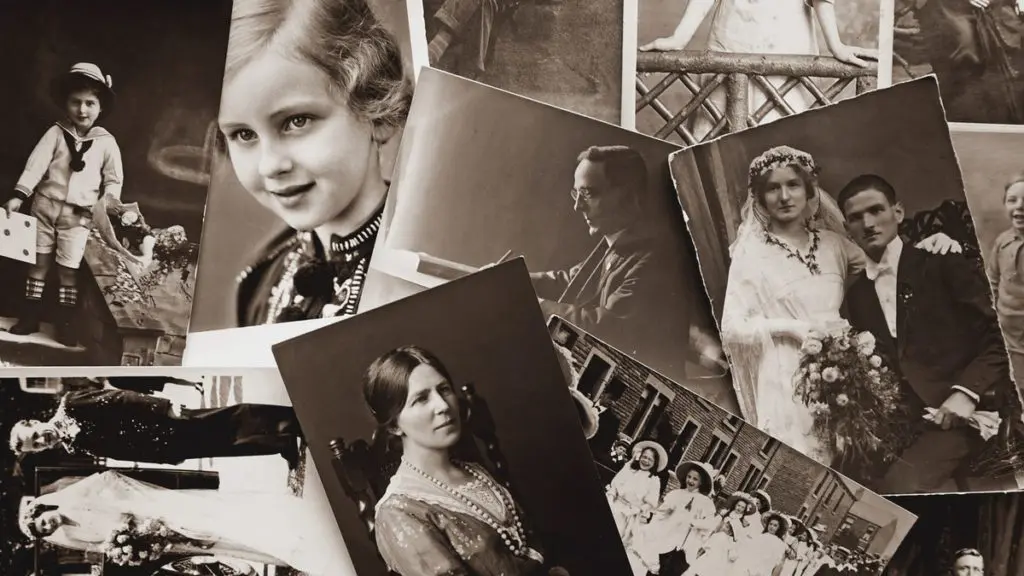


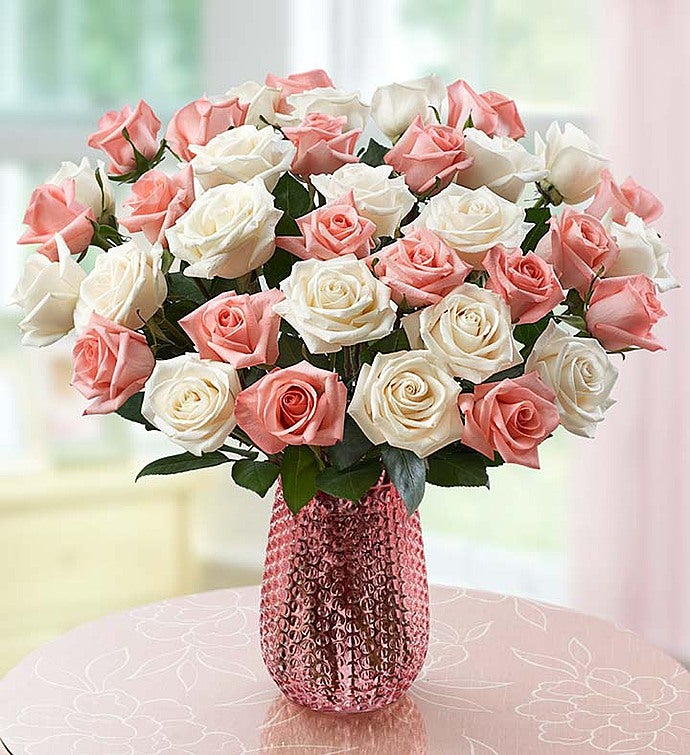


Comments are closed.